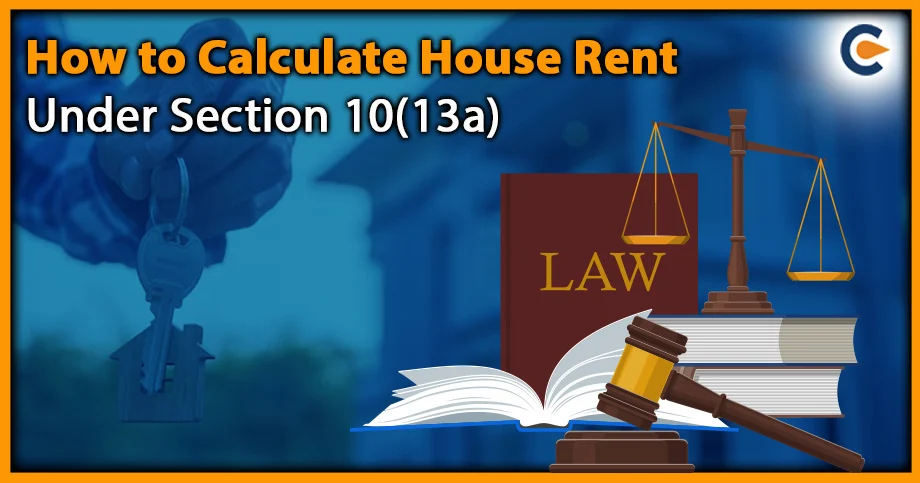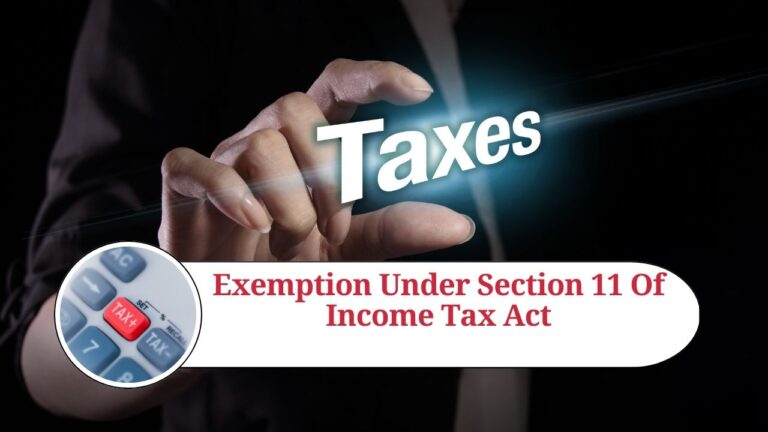Section 10(13): Payments from Approved Superannuation Fund
In this blog, we will focus on Section 10(13) and Section 10(13A), elaborating on the details, relevant case laws, and practical examples to give you a comprehensive understanding.Payments from an approved superannuation fund are exempt from being included in the total income under specific conditions:
Death of a Beneficiary:
Any payment made on the death of a beneficiary.
Retirement or Incapacitation:
Payments to an employee in lieu of or in commutation of an annuity on his retirement at or after a specified age, or on his becoming incapacitated before such retirement.
Refund of Contributions on Death:
Payments made by way of a refund of contributions on the death of a beneficiary.
Refund of Contributions on Leaving Service:
Payments made by way of refund of contributions to an employee on his leaving the service, other than by retirement at or after a specified age or on becoming incapacitated before such retirement. The extent of the exemption is limited to contributions made before the commencement of the Income Tax Act and any interest thereon.
Transfer to Pension Scheme:
Payments by way of transfer to the account of the employee under a pension scheme referred to in Section 80CCD and notified by the Central Government.

Practical Examples:
Example 1:
Mr. Raj, an employee, retires at the age of 60. He receives a commuted annuity payment from his employer’s approved superannuation fund. This payment is exempt from tax under Section 10(13).
Example 2:
Ms. Ananya, an employee, becomes incapacitated at the age of 50 and receives a payment in lieu of annuity from the approved superannuation fund. This payment is also exempt from tax under Section 10(13).
Relevant Case Law:
CIT vs. Smt. Jennifer Bhide (2011):
The Karnataka High Court held that payments received from an approved superannuation fund are exempt from tax under Section 10(13). This case reinforces the principle that such payments are not included in the total income.
Section 10(13A): Special Allowance for Rent
House Rent Allowance (HRA) is a special allowance granted by employers to employees to meet the cost of renting a residential accommodation. This allowance is partially exempt from tax under Section 10(13A) of the Income Tax Act.
Key Conditions for HRA Exemption:
- The exemption does not apply if:
- The residential accommodation occupied by the assessee is owned by him.
- The assessee has not actually incurred expenditure on payment of rent for the residential accommodation occupied by him.
Calculation of HRA Exemption:
The HRA exemption is calculated based on the least of the following:
- Actual HRA received.
- 50% of salary (basic + DA) if living in a metro city, or 40% if living in a non-metro city.
- Actual rent paid minus 10% of salary (basic + DA).
Practical Examples:
Example 1:
- Mr. Arjun lives in Mumbai and pays a monthly rent of Rs. 30,000. His basic salary is Rs. 60,000 and he receives an HRA of Rs. 20,000 per month. The exempt amount is the least of the following:
- Actual HRA received: Rs. 20,000
- 50% of salary: Rs. 30,000
- Rent paid minus 10% of salary: Rs. 24,000 (30,000 – 6,000) Thus, the exempt HRA is Rs. 20,000.
Example 2:
- Ms. Priya lives in a non-metro city and pays a monthly rent of Rs. 15,000. Her basic salary is Rs. 40,000 and she receives an HRA of Rs. 12,000 per month. The exempt amount is the least of the following:
- Actual HRA received: Rs. 12,000
- 40% of salary: Rs. 16,000
- Rent paid minus 10% of salary: Rs. 11,000 (15,000 – 4,000) Thus, the exempt HRA is Rs. 11,000.
Relevant Case Law:
CIT vs. Shailesh Shah (2001):
The Gujarat High Court held that the special allowance for rent is exempt under Section 10(13A) only if the conditions specified in the section are met, i.e., the allowance is specifically granted to meet the rent expenditure, and the assessee has actually incurred such expenditure.
Frequently Asked Questions (FAQ)
Q1: What is a superannuation fund?
A superannuation fund is a pension program created by a company for the benefit of its employees. Contributions to the fund are made by both the employer and the employee, and the fund provides benefits to employees upon retirement.
Q2: Are all payments from a superannuation fund exempt from tax?
Not all payments from a superannuation fund are exempt from tax. Only specific payments mentioned under Section10(13) of the Income Tax Act, such as those on the death of a beneficiary or on retirement or incapacitation of an employee, are exempt.
Q3: What is House Rent Allowance (HRA)?
House Rent Allowance (HRA) is a special allowance granted to employees by their employers to meet the cost of renting a residential accommodation. It is partially exempt from tax under Section 10(13A) of the Income Tax Act.
Q4: Can I claim HRA exemption if I own a house?
No, you cannot claim HRA exemption if you own the residential accommodation you are living in. The exemption is only available if you actually incur expenditure on rent.
Q5: Are there any limits to the contributions to a superannuation fund that are exempt from tax?
Yes, the exemption for refund of The HRA exemption is calculated based on the least of the following:
- Actual HRA received.
- 50% of salary (basic + DA) if living in a metro city, or 40% if living in a non-metro city.
- Actual rent paid minus 10% of salary (basic + DA).
contributions is limited to contributions made before the commencement of the Income Tax Act and any interest thereon.
Conclusion
Section 10 of the Income Tax Act provides various exemptions to ensure that specific incomes are not included in the total income of an assessee. Understanding these exemptions can help taxpayers plan their finances better and take full advantage of the available tax benefits.
For further reading, you can explore more about Understanding Superannuation Fund Exemptions and House Rent Allowance: Benefits and Eligibility.
For professional help and personalized advice, contact us at SmartTaxSaver.




